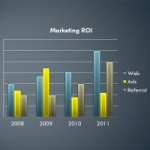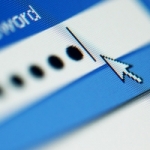NetWorthy Systems Blog
Internet privacy is no new issue. Between malicious hackers trying to breach private information, governments trying to regulate it, and organizations trying to track as many metrics as they can, the Internet continues to chug along for the most part just fine. Are YOU concerned about Internet privacy?
Last time we went over how to dress up your PowerPoint presentations with SmartArt, a feature in many Microsoft Office applications. Today we're going to be showing you how to create charts to display various types of data in PowerPoint, but like before, these will work much the same in other Office products such as Microsoft Word.
Nobody wants to spend more than they have to, especially when it comes to those necessary evils like bills, utilities, insurance, and the general costs of keeping things running smoothly. At NetWorthy Systems, our goal is to provide outstanding enterprise-level solutions for small business prices. Let's talk about a few ways to cut long term IT costs.
This has been a pretty common topic for us on the NetWorthy Systems blog. We've seen a lot of Beaumont clients and customers suffer the consequences when online retailers and other account providers experience a security breach. It is equally vital for consumers to know what to do in the event of a security breach as it is the company that is actually breached.
This month Google announced that their search results will now contain personal results from friends and connections made in Google+. Twitter, the real-time searchable social network, publicly announced that they thought this was not a good idea. Will personalizing search results make for a better Google experience or will it hurt? Let's take a look.
Hard drives have been getting bigger (capacity-wise) and cheaper over the past decade which is great news for everyone. Toshiba predicts that in 2012 that over 2 zettabytes (2 trillion gigabytes!) of data will be created and replicated (double from 2010). While costs are going down, data growth is still a challenge for data centers and IT administrators.
On the topic of identity theft, social media accounts are becoming a high target for hackers, especially for spreading malicious viruses. To some, losing control over their Facebook or Twitter accounts could be just as devastating as having their credit card stolen. Trouble is, for many users, having one login account stolen means hackers have access to their other accounts too.
Your identity has quite a lot of value, especially in the wrong hands. Security firm ZoneAlarm put together some numbers in 2011 concerning identity fraud, and it even shocked us. Let's talk about a few of these statistics and what it means.
Computer viruses and malware have been around for a long time, and cybercriminals have always tried to package their malevolent doings under a veil of deception. One method that has been in place for a while now is called scareware. Often disguised as something that appears to want to help your computer, scareware will scam users into paying for a service that isn't beneficial.
We talk a lot about business and technology and all of that good stuff here on the NetWorthy Systems blog, but believe it or not, there are (at least) a couple things in life that are more important that that. One of the big ones is personal health. This goes double for all you hard workers out there who put in long stressful hours trying to run and manage your business - it's easy to forget or skip over the routines for proper health maintenance. Unfortunately, we don't offer a flat-rate remote monitoring and maintenance service for humans, but here are a few tips you can do to keep yourself in tip-top shape while on the job.
Ever since the public has been logging on to the Internet, certain people have been using the Internet to take advantage of others. Whether it be through scams, viruses, malware, phishing, or a whole slew of other dangerous activity, cyber criminals have been very good at making Internet security an industry on its own. With the colossal popularity of social networks like Twitter and Facebook, miscreants are capable of targeting even more users than ever before. On top of that, their methods seem to be hitting people where it hurts. Learn how you can prevent falling into one of their traps.
We talk a lot about smartphones and tablets as business tools, but these days more and more people are using high-end devices personally. It's likely that they are bringing these devices in to work, and often using them to become more productive at their job. We call this Bring-Your-Own-Device, or BYOD, and it isn't a bad thing. The catch is managing security risks when users are using their own personal gadgets.
Business owners and executives aren't always chained to their desk. Sometimes opportunities take you out of the office, out of town, and on the road. Traveling to vendor shows, conferences, training, expos, or even hitting the greens for a few days doesn't mean you need to be totally inaccessible. It's becoming increasingly simple to for the traveling business person to stay connected and get things done even when not at the office.
There are plenty of terrible ways businesses can suffer from data loss; the inevitable failed hard drive, electrical disturbances, human error, viruses, fires, floods, earthquakes - you name it. That's what backup is for, right? If you are running (and managing) a tape backup system, and keeping the backups off site, what could possibly go wrong? Today we investigate one of the leading causes of data loss. It will shock you.
Do you know what others are saying about you online? Keeping track of your online reputation is very important for businesses of any size; and you'd be surprised what people are saying about you. Using the free service Google Alerts, you can get notifications whenever Google finds something new about you on the internet.
Last time, we blogged about whether or not social media and personal Internet use was a bottleneck for employee productivity. Let's not look at the Internet as a fundamental time-waster or a necessary evil. After all, the Internet has changed the way companies do business. This time we're going to investigate if your Internet is keeping up with your company.



















